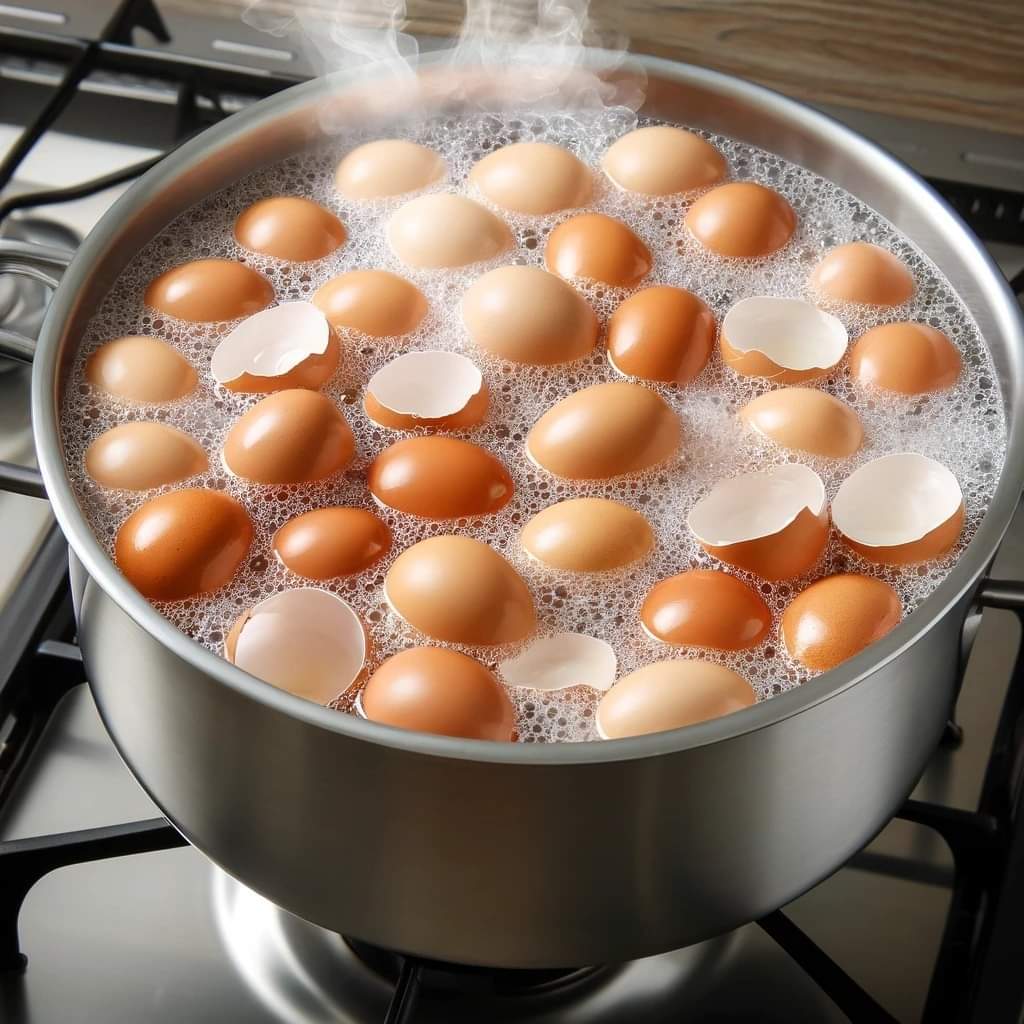In the quest for sustainable living and cost-saving measures, everyday kitchen waste often holds untapped potential. Eggshells, typically discarded without a second thought, are a prime example. By boiling eggshells, you can create a natural calcium supplement, enrich your garden soil, and contribute to environmental conservation. This practice not only reduces waste but also offers a budget-friendly alternative to commercial products.
The Nutritional Powerhouse of Eggshells
Eggshells are predominantly composed of calcium carbonate, a compound that constitutes about 95% of their makeup. This high calcium content makes them an excellent source of this essential mineral, which is vital for bone health, muscle function, and nerve signaling. In fact, the calcium found in eggshells is similar to that in over-the-counter supplements, providing a natural and readily available option for those looking to boost their calcium intake.
Preparing Eggshells for Consumption
To harness the nutritional benefits of eggshells, it’s important to process them properly to ensure safety and maximize absorption. Here’s a step-by-step guide:
- Collection and Cleaning: After using eggs, rinse the shells thoroughly to remove any residual egg white or yolk. This step is crucial to eliminate potential bacteria.
- Boiling: Place the cleaned eggshells in a saucepan, cover them with water, and bring to a boil. Let them simmer for about 10 minutes. Boiling not only sterilizes the shells but also helps to break down their structure, making the calcium more bioavailable.
- Drying: After boiling, drain the water and spread the shells on a baking sheet. Allow them to air dry completely.
- Grinding: Once dry, grind the shells into a fine powder using a coffee grinder or mortar and pestle. The finer the powder, the easier it is for the body to absorb the calcium.
- Storage: Store the powdered eggshells in an airtight container.
To incorporate this natural supplement into your diet, add about half a teaspoon of the powder to your food or beverages daily. It’s advisable to consult with a healthcare professional before starting any new supplement regimen, especially if you have existing health conditions.
Eggshells as a Natural Fertilizer
Beyond personal health benefits, eggshells serve as an excellent natural fertilizer for plants. Their high calcium content helps strengthen plant cell walls, promoting robust growth and preventing issues like blossom end rot in tomatoes and peppers.
To prepare eggshells for gardening:
- Crushing: After boiling and drying, crush the eggshells into small pieces.
- Application: Sprinkle the crushed shells directly into the soil or mix them into compost.
- Watering: For a liquid fertilizer, boil the crushed shells in water, let the mixture sit overnight, strain, and use the calcium-rich water to nourish your plants.
This method not only recycles kitchen waste but also reduces the need for chemical fertilizers, contributing to a healthier environment.
Environmental Impact and Sustainability
By repurposing eggshells, you contribute to waste reduction and promote sustainability. The average household consumes a significant number of eggs annually, leading to considerable waste. Transforming this waste into valuable resources like dietary supplements and fertilizers exemplifies the principles of a circular economy, where products are reused and recycled, minimizing environmental impact.
Cost Savings
Commercial calcium supplements and fertilizers can be costly. By utilizing eggshells, you can achieve similar benefits at a fraction of the cost. This practice is particularly advantageous for those on a budget or seeking natural alternatives to store-bought products.
Additional Uses of Eggshells
The versatility of eggshells extends beyond supplements and fertilizers:
- Pest Deterrent: Crushed eggshells scattered around plants can deter pests like slugs and snails, as the sharp edges are uncomfortable for these creatures to cross.
- Cleaning Agent: Ground eggshells can act as a mild abrasive cleaner for pots, pans, and even stained thermoses.
- Composting: Adding eggshells to compost piles enriches the compost with calcium, enhancing its nutritional value for plants.
Conclusion
Boiling and repurposing eggshells is a simple yet effective practice that offers numerous benefits. From providing a natural calcium supplement to enriching garden soil and promoting environmental sustainability, this approach transforms kitchen waste into valuable resources. By adopting this practice, you not only save money but also contribute to a more sustainable and health-conscious lifestyle.

